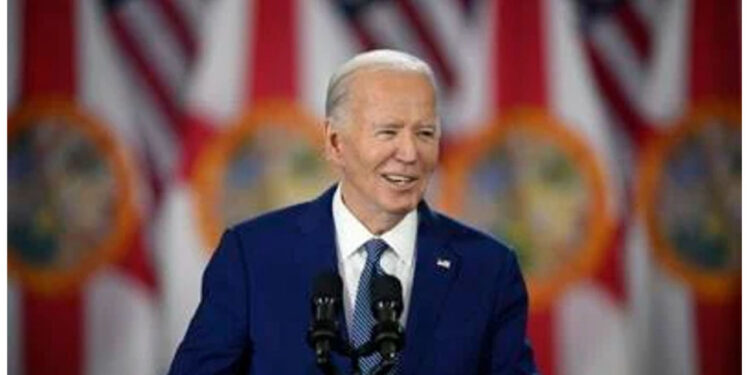On Wednesday, President Biden awarded mercy to 16 people convicted of nonviolent drug offenses, pardoning 11 and commuting the sentences of the other five.
Among the pardon recipients are a woman who has since earned her doctorate, a business owner, and community members involved in local churches, while one commuter recipient will no longer face a life sentence in prison.
In December, the president issued categorical pardons to thousands of people convicted of marijuana use and simple possession in Washington, D.C., as well as on federal property.
Clemency is a broad term that encompasses both pardons, which absolve legal consequences arising from a conviction, and commutations, which reduce jail sentences or eliminate other punishments.
The president declared in a written statement that the promise of second chances founded America. “During Second Chance Month, we reaffirm our commitment to rehabilitation and reintegration for persons returning to their communities after incarceration. We also pledge to create a criminal justice system that upholds those objectives and ensures that everyone receives equal justice under the law. That is why I am announcing today the steps I will take to make this pledge a reality.
Mr. Biden stated that his government would “continue to review clemency petitions and deliver reforms in a manner that advances equal justice, supports rehabilitation and reentry, and provides meaningful second chances.”
Mr. Biden pardoned Katrina Polk, 54, a Washington, D.C. resident who pleaded guilty to a misdemeanor narcotics crime at the age of 18. Polk has now gotten a PhD in public policy and administration and is now an elderly champion, according to the White House.
Jason Hernandez of McKinney, Texas, a 47-year-old man convicted of multiple petty drug charges beginning as a teenager, was also granted a pardon. The White House stated that, under current laws, he would have received a substantially lower sentence. He now operates a nonprofit that has renovated the business outside where he used to sell drugs. The charity supplies his area with high-quality, low-cost food.
The White House also pardoned Alexis Sutton, a 33-year-old woman from New Haven, Connecticut, for her nonviolent narcotics crime. She is attending lessons to become a registered nurse and is active in her local church, according to the White House.
The president also lowered the sentences of five people convicted of cocaine-related crimes.
On charges of manufacturing cocaine base, Miami resident Jophaney Hyppolite received a life sentence and ten years of supervised release in 2013. The president reduced the sentence to 30 years while maintaining the 10-year supervised release period in place.
Presidents frequently wait until the conclusion of their terms to give a flood of pardons or more controversial acts of clemency.
The Biden administration has expressed a desire to make the punishment for nonviolent drug offenses more racially equitable, recognizing gaps in minority and, particularly, black neighborhoods.










